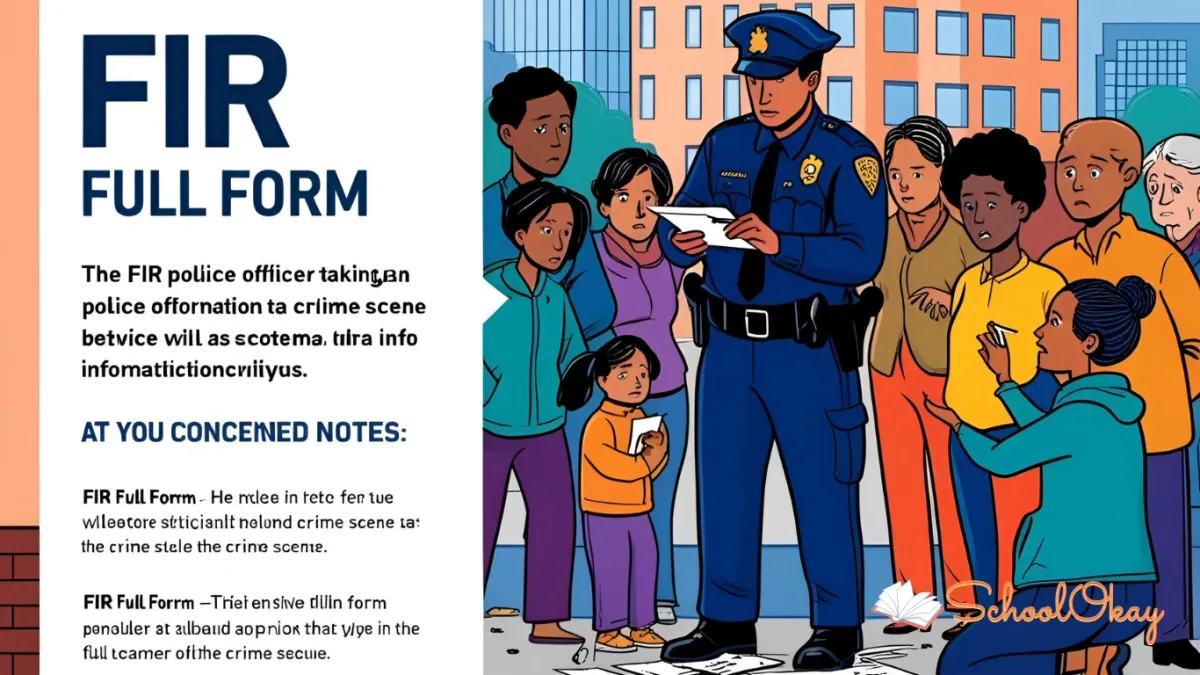FIR Full Form and other Details about FIR
I’m here to lay it all out, my style. FIR stands for First Information Report, and it’s a major player in India’s legal game.

If you’ve ever caught the term FIR in the news or crime dramas and wondered what’s up, I’m here to lay it all out, my style. FIR stands for First Information Report, and it’s a major player in India’s legal game. It’s the official kickoff for a police investigation when a crime pops off. Let’s break down everything about FIRs—what they are, how they work, why they’re clutch—in 500 words, no BS, with all the key links you need.
What’s a First Information Report?
It’s a written record the police create when someone reports a cognizable offence—serious stuff like robbery, assault, murder, or rape, where cops can arrest without a warrant and dive into investigating right away. The rules come from the Code of Criminal Procedure (CrPC), 1973, Section 154, which spells out how it’s done. Someone—victim, witness, or just a random who knows something—drops the details, and the police put it on paper. That’s the FIR, the “yo, we got a problem” signal that starts the legal hustle. You can read the CrPC fine print at indiankanoon.org.
Here is the process to file an FIR first information Report?
You hit up a police station (or dial 100 if it’s urgent) and spill what happened. The duty officer, usually a sub-inspector or above, writes it in the FIR register. You don’t need every detail—just enough to point to a cognizable crime. The report covers basics: your name, when and where it went down, and what’s up. Once it’s filed, you get a free copy, and the police are supposed to jump on it. If they slack, you can push back by hitting up a senior cop or a magistrate under CrPC Section 156(3).
Big flex about FIR?
The Zero FIR. Post-2012 Nirbhaya case, this lets you file at any station, even if the crime’s outside their zone. They’ll pass it to the right folks, no hassle. Also, e-FIRs are a thing now—check online portals like delhipolice.gov.in for Delhi or your state’s site (like uppolice.gov.in for UP). Anyone can file—victim, homie, or some dude who saw something. Anonymous tips work, too, but giving your info helps for follow-ups. For sensitive cases, like sexual offences, cops gotta record women’s statements at home, thanks to 2013 CrPC updates.
Why’s it a big deal? The FIR is like the match that lights the investigation fire. No FIR, no action—courts lean on it to take cases seriously. But heads-up: fake FIRs are illegal under the Indian Penal Code, so don’t try to play dirty. For non-cognizable offences (minor stuff like petty fights), cops won’t file unless a court says so.
Click india.gov.in for official guidelines or legalserviceindia.com for deeper dives. Need to file online? Your state’s police website’s got you—search it up.FIRs are your ticket to justice, fam. Know the deal, stay sharp, and keep it real.
Sources:
- indiankanoon.org,
- india.gov.in,
- legalserviceindia.com,
- delhipolice.gov.in
Here are other full-form articles you can check:



Thanks for supporting our work by sharing with more students.








